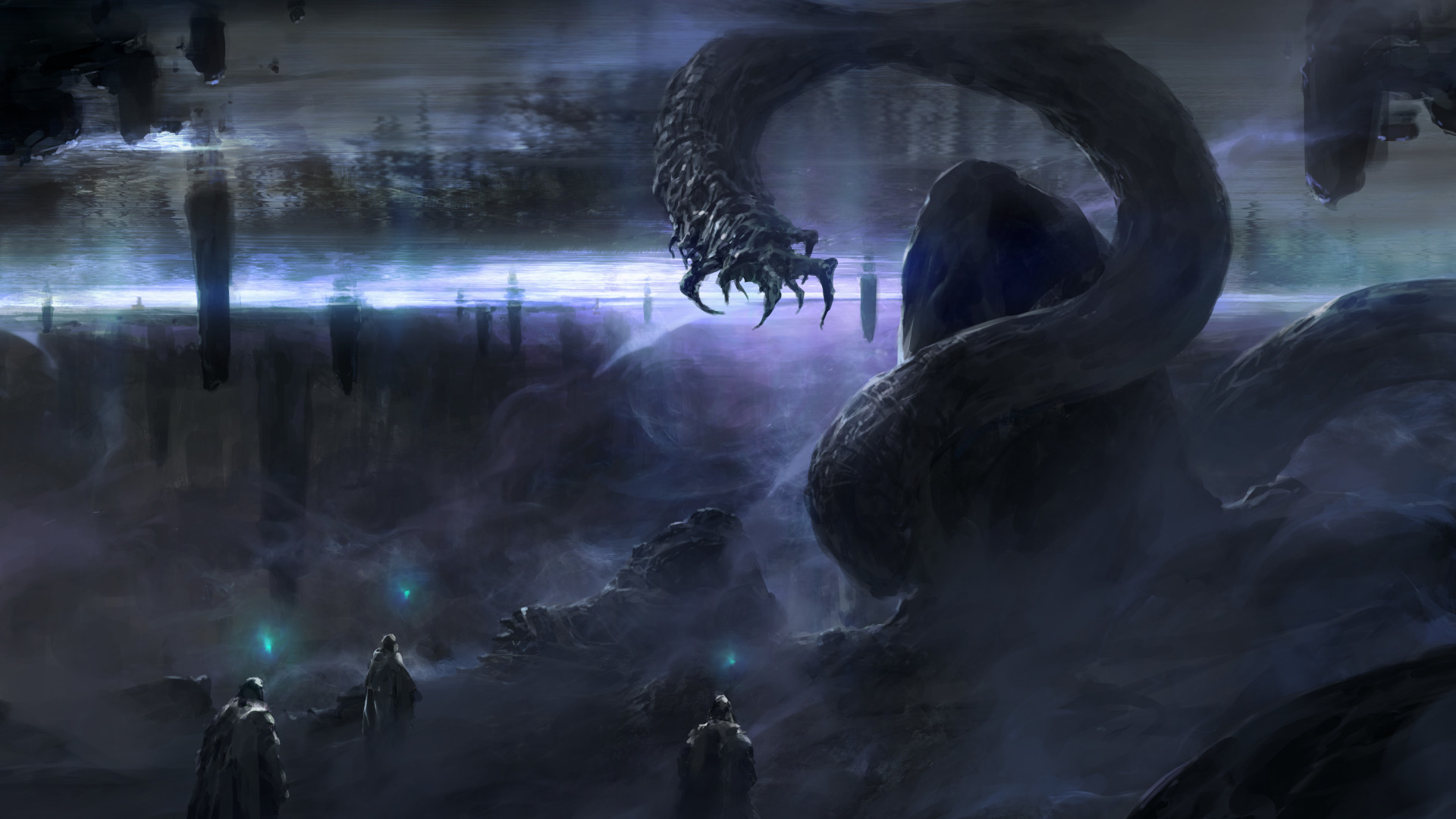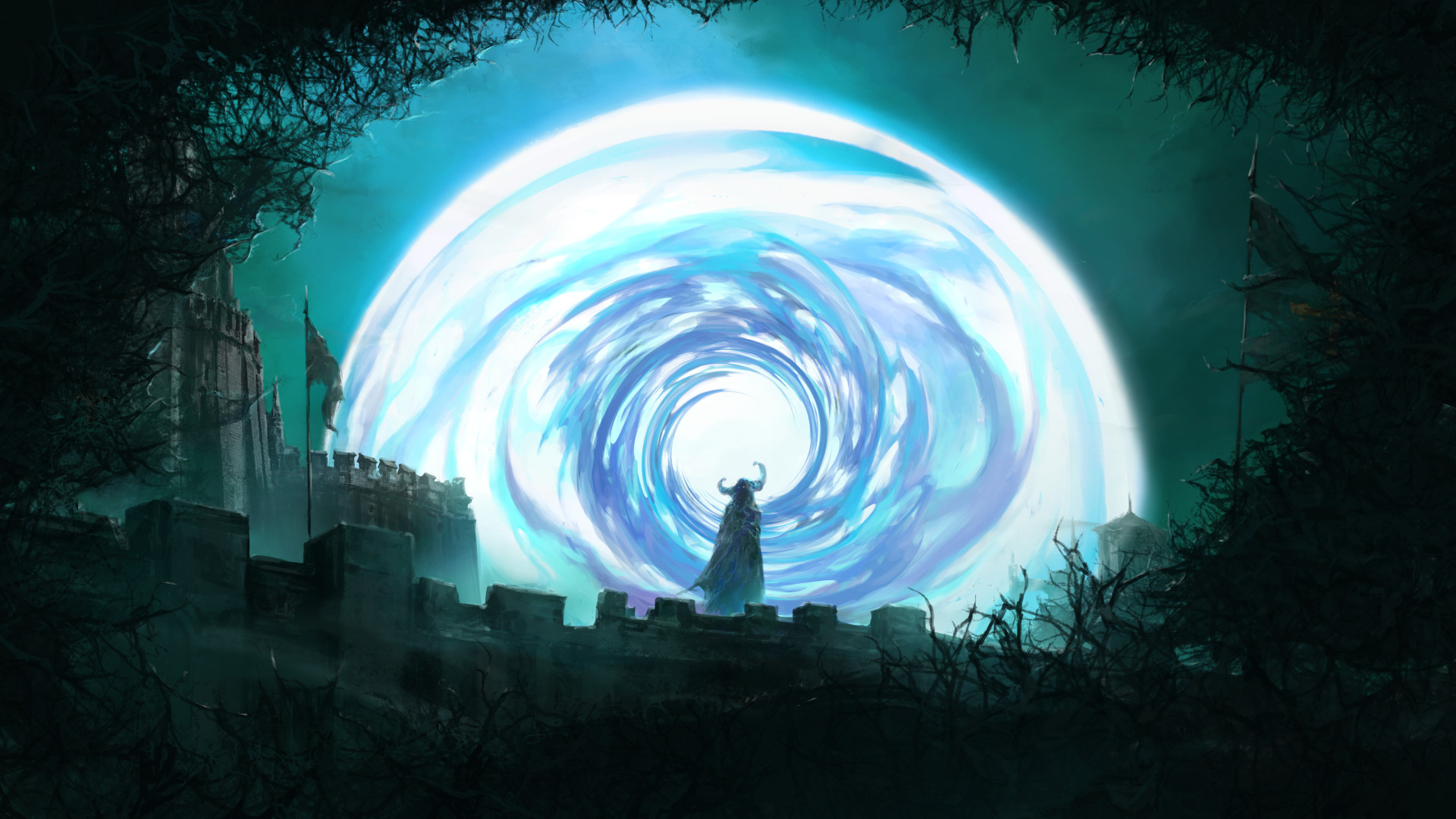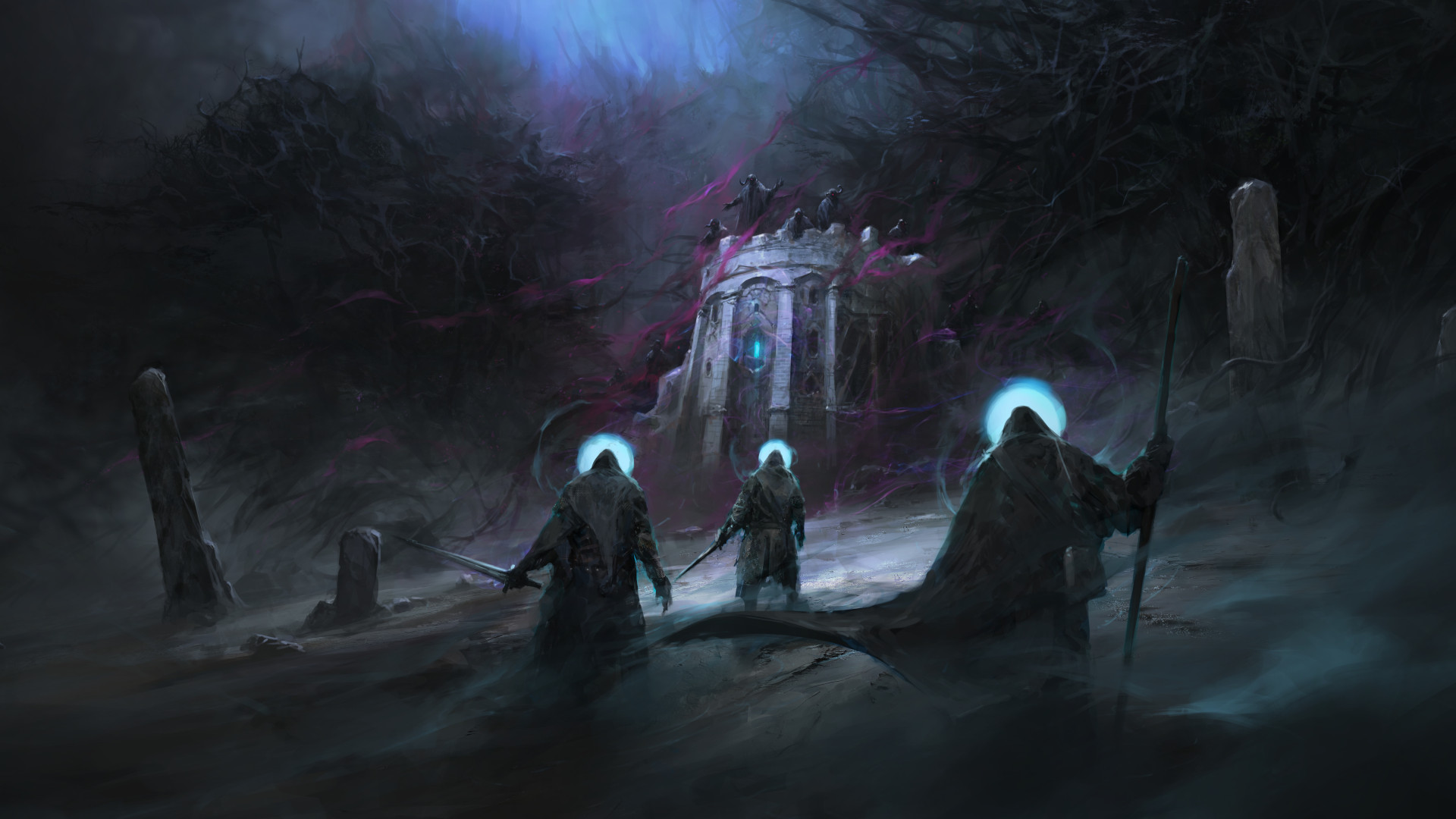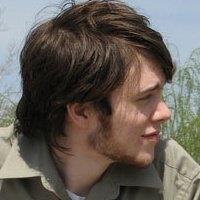Wyrdsong aims to "bring the best of Bethesda and Obsidian into one RPG"
How Bethesda and Obsidian vets are making an RPG where your mind is the unreliable narrator

Bethesda and Obsidian have created some of the biggest and best RPGs in the genre's canon. On one side, you've got sprawling epics like Fallout 3 and Skyrim, providing massive sandboxes with seemingly infinite places to explore. On the other, the likes of Fallout: New Vegas and The Outer Worlds build on the formula with more intricate storylines and far more ways for players to establish their own identity in the world. So when veterans of both studios come together to build a new open-world RPG called Wyrdsong, there's good reason for players to take notice.
Wyrdsong debuted in a trailer at Gamescom Opening Night Live as the first project from a new, fully-remote studio called Something Wicked Games. It's billed as a dark fantasy open-world RPG, drawing equally from history, myth, and horror to create its setting. But as striking as the imagery is, it's the pedigree that makes Wyrdsong so enticing.
Something Wicked's founder and CEO is Jeff Gardiner, who worked at Bethesda for over 15 years, serving as a producer on Oblivion's expansions and continuing in leading production roles on Fallout 3, Skyrim, and Fallout 4. He also led development on Fallout 76, from that game's troubled launch through its impressive series of revamps and content additions.
In an interview before the game's official reveal, Gardiner hinted to us that it's going to be a long, long time before Wyrdsong becomes something concrete. (Platforms aren't even announced yet, though Gardiner told us in an aside that he wants "this game to be available to as many people as humanly possible.") But we got plenty of insight into the inspirations behind the game, from Lovecraft to Breaking Bad, and how a sense of real history will combine with dark fantasy to create a fresh world.
This interview has been lightly edited for clarity and length.

GamesRadar+: Something Wicked Games has an impressive pedigree that the Wyrdsong reveal trailer seems to be leaning on, with veteran talent from Bethesda and Obsidian. Will Wyrdsong be an RPG, similar to what we've come to expect from those studios?
Jeff Gardiner: Yes. We're calling it a dark, preternatural – or maybe occult – big open-world RPG where we want to invite the player to come in, in a familiar landscape. We're setting it in a very historical fantasy and using those two polar opposite terms together. You come in and you experience a world that is both grounded in some kind of reality but the more and more you explore, you realize that things are not as they seem. You're sucked into an idea that there's more to this world than meets the eye.
Sign up to the GamesRadar+ Newsletter
Weekly digests, tales from the communities you love, and more
GR: Does Wyrdsong take place in a specific time period of history?
Gardiner: We're blurring it a little bit. We don't want to be pinned down too much by events at the time. We want to ground it in some kind of understandable reality like 12th or 13th century Portugal. But we want to leave ourselves enough room to allow players, for instance, to play whatever gender identity or race they want – to come in and experience this world as a reflection of themselves. And we're going to go in with just enough fantasy so when the weirder elements come in, as you saw in the back half of that trailer, it makes sense and fits in with the world we've envisioned.
GR: Those fantasy elements look very horror-esque, almost Lovecraftian in the trailer. Is that the direction you're going for?
Gardiner: That's absolutely the vibe we want to go for. I'm a big believer in contrast, so it won't be so dark and overwhelming. But there will definitely be elements of Lovecraftian horror, for sure.
GR: What can fans expect from Wyrdsong's gameplay?
Gardiner: The pedigree that I, and my co-founders, have is a big open world RPG. So we're definitely going to do that. I love the idea of immersing yourself in a world and going where you want and doing what you want within the bounds of the designer's intent. One of my co-founders, Charles Staples from Obsidian, was the lead level designer of Fallout: New Vegas and also the design director of The Outer Worlds. We worked together 20 years ago – at 7 Studios on the Fantastic Four game – and stayed friends. So when I departed Bethesda, and finally figured out what the hell I wanted to do, he was one of the first people I called. He was like, 'Yeah, let's do it'. And now we're really excited to bring both Bethesda and Obsidian, the best of both those worlds, together into one single RPG.

We're really excited to bring both Bethesda and Obsidian, the best of both those worlds, together into one single RPG.
Jeff Gardiner
GR: What role does the player have in the world?
Gardiner: We're not going to define that. You come in, you do character creation, you figure out, again, the race and gender identity you want to play, and then you will decide that. You're going to come in as a blank slate. We have some neat ideas that I don't want to spoil about how we're going to introduce some back history. But at the same time, when a player 'comes to', as we're saying, they will be a blank slate. You're going to be able to decide what you want to do. I'm a big fan of the old Gothic games by Piranha Bytes. They did this excellent three faction system that persisted up until Elex 2, which I just finished recently. I want the player to come in and sort of figure out where they fit into this world, and the Templars will be one of those factions. We are digging into the Templars in a very fantastical way.
[The inspiration behind the setting] was sort of a confluence of events. I had visited Portugal right before COVID. Then I started reading a book about the Templars, about their origins and how they came from Portugal, and realized a lot of the places in this book I had visited. We wanted to dig into that but sort of stay away from historical fact, in the origin of the Templars and what they did. Ultimately, we want to stick to the fantasy elements, and explore what happened after they were all excommunicated and all these things that underpin a lot of secret societies that still exist today.
GR: What do you feel the semi-historical, Portugal-inspired setting brings to Wyrdsong?
Gardiner: I thought about a lot of different settings for this game, I definitely wanted to stay away from a post-apocalyptic setting. I was in Fallout for 10 straight years. Like, I've done this, and I need to take a breather – not that I don't love it, trust me. A lot of fantasy games are based on Tolkien a little. I didn't want to go there, with the different races and this sort of pseudo Middle-earth thing that you see everywhere. I love England and the countryside there, but so many of these games are set around that. Kingdom Come Deliverance was an interesting example, because it was an Eastern European historical game, so I took a little inspiration from them.
And then I had been to Portugal on my last vacation – which in COVID, you really remember that last vacation. And with the synchronicity of reading that book, I was like, 'let's do it in Portugal'. There's this Iberian Peninsula, this different architecture, there's a sweeping coastline, sort of arid mountains. It's familiar enough, because you'll have the same trappings of swords, armor, tassels, and things, but it will be different enough where it's not just either central France or English-based. I'm really excited to explore that architecture in the setting and the things that you can get from that world.
GR: Will players have a similar amount of freedom in building their class?
Gardiner: Yes, but I don't want to reveal too much now. We're still very early days. One of the big things I found in my years making games is that I love having creative people given the autonomy to sort of come up with their own cool ideas, define things, and tell me what they feel would be best for the vision of this game. So I don't want to box us in by saying things this early, and then three years down the road and saying, 'Hey, we've promised these things'. I will say that Charlie and I are big believers in giving the player all as many tools as possible to have fun in whatever manner they want to.
GR: Is Wyrdsong fully single-player?
Gardiner: We don't want to box ourselves in too early. We really want to focus on the setting and themes that we're trying to get across.
We're big believers in giving the player all as many tools as possible to have fun in whatever manner they want to.
Jeff Gardiner
GR: From that semi-historical base, how do the fantasy elements enter Wyrdsong's story?
Gardiner: There's something I learned years ago when I wanted to be a writer: if you're going to have supernatural, fantastical elements, you need to warn the reader or the player or the movie watcher that they're coming in. If you've ever read a book, and all of a sudden, halfway through this weird ghost comes into something, it doesn't work. So we're going to allude to this in the beginning. We're going to ground the player really strongly, but very quickly as they go in, they're going to realize the world is not all it seems.
I'm a big fan of the idea of the unreliable narrator. I think it's been done very well in film and a lot of literature in the last 10-15 years, but it hasn't really come into video games. One of the sources of inspiration was Robert Eggers' The Witch, for a couple of reasons. This is a story about a family that went into the wild and tried to make it on their own and the insanity that happened with talking goats and such. But then there was this idea in the end that there was this head fake - 'well, maybe this was actually real'. I want the player to always be questioning, 'is this really what's happening? Or is this something that I am hallucinating?'
I was also really inspired by Robert Eggers idea that this was based on actual recorded accounts at the time of people doing this thing. These people actually went to the wild and went crazy. So this idea that perception is reality, that the brain is not a passive receptor of information, it actually will create things in your vision, and auditory hallucinations. I really want to go into that in this game and slowly introduce those things over time, and maybe lead the player to a greater understanding of the world around them and themselves.
GR: That idea certainly seems to lend itself to some horror elements, as well.
Gardiner: Absolutely. I'm a big fan of Lovecraft, and you see a lot of that in the trailer. It's definitely a dark, preternatural or occult sort of feeling. But I think you can go overboard with that. I'm a big fan of contrast, so there's times when it's more relaxed, and you're having fun, and it's sort of serene. Then there are these moments of abject horror, moments of things that make you go, 'Oh, my God, this is actually real'. A good horror film lulls you into a sense of 'Oh, things are okay'. And then you get it.
That's, to me, what makes fun, compelling – not just horror. I always refer back to Breaking Bad because it's labeled as a dark comedy, but if you rewatch that show, it starts off with a lot of comedy. Then all of a sudden it becomes a very real, very hard show. But they keep reintroducing these elements, so that as someone who's watching, you're not overwhelmed with the sort of misery that's happening. Walter throws the pizza on the roof, you know? Then you see it again, episodes later, rotting on the roof. Those are the kinds of things I want to do. I want to bring in different contrasting elements so the players are kept on their toes.
GR: That contrast of tones sounds a bit like Fallout, too.
Gardiner: I agree, and I think that's what makes Fallout work. It is such a dark, depressing world. Like, the world was destroyed! And then you have all these weird, real fantastical elements of the game. At the same time, there's comedy. I think Fallout would be a little more on the comedy side in some aspects, but yeah, it's very similar.
GR: Obviously, crunch and other workplace issues are a major topic in the industry right now. What's your approach to company culture at Something Wicked?
Gardiner: We're putting culture and team first. It's something with games in particular. I've been doing this a long time, and it is so important that people feel safe in the environment they work in, and that they have the creative autonomy they need. This is especially important for creative people, because creativity is not a faucet that you turn on at 9am and turn off at 5pm. That's the advantage of remote work.
I fully believe that schedules are tools, not weapons. With the funding that we sought - we got a $13.2 million seed round from NetEase – one of the promises I made to the founders, and I will continue to make, is that there's no timelines or milestones associated with this. We set our own rules, we hold ourselves accountable, and we have open and honest conversations when [those rules] are not working how to course correct in the future. Not to pillory people, but 'what what went wrong? Did we bite off more than we can chew? And how can we readjust these schedules?' That's why we're not putting hard timelines on the game. We will not mandate crunch. It's not the way the world works anymore.
GR: I imagine with that in mind, you don't have a solid release window for Wyrdsong yet.
Gardiner: I have an idea of when the game's gonna come out, and I do believe in setting goals and priorities, so you're not just endlessly working on something. There's a danger. I think you can see this in some creatives that write books – or do films – with no deadlines or editors. You maybe know who I'm referring to, and I won't name them. But I think they fall afoul of things. I think sometimes a tiny bit of 'this needs to be done at this point' is good. As long as it's accounted for if things go sideways, like COVID, or whatever.
Anyway, we have a loose timeline in mind, but I really want this game to come out properly and in its best state, so there is no hard timeline right now. It is way in the future. We really are sort of planting our flag for what we're making, for the industry, and for fans who want to ride along with us for the next few years.

Dustin Bailey joined the GamesRadar team as a Staff Writer in May 2022, and is currently based in Missouri. He's been covering games (with occasional dalliances in the worlds of anime and pro wrestling) since 2015, first as a freelancer, then as a news writer at PCGamesN for nearly five years. His love for games was sparked somewhere between Metal Gear Solid 2 and Knights of the Old Republic, and these days you can usually find him splitting his entertainment time between retro gaming, the latest big action-adventure title, or a long haul in American Truck Simulator.


